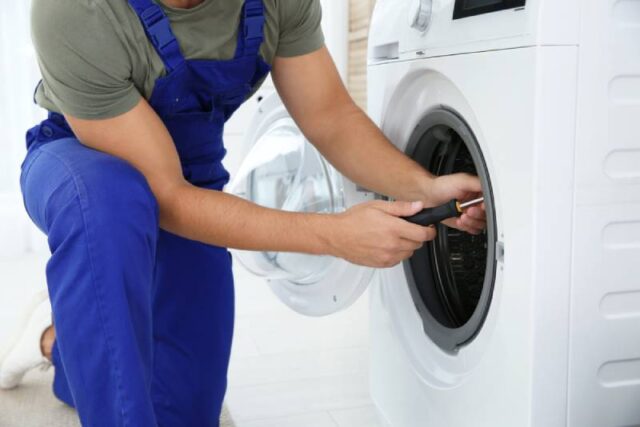
To Repair or Replace? What to Do with Broken Laundry Machines
The washing machine is such a complex appliance, but a useful and profitable one at that. Every washing machine is different, having its own features and designs, with most of the processes of the machine electrically controlled, like the motor, drum, heating, pump, and valves.
Because of that, it can get confusing to know whether or not your laundromat’s machines require repairing or replacement, given its complexity! So, what do you do if the washing machine starts making noise or leaking?
Repair or Replace: Factors to Consider
Is it time for the washing machine to retire, or will it just need the replacement of commercial laundry parts from stores like Laundry Replacement Parts? Here are the factors to consider:
1. How old is the machine?
All appliances would have an average expected lifespan. Washing machines remain operational for up to 11 years or so. After it hits 11 years, it’s best to replace it since the performance probably degraded over time.
It likely doesn’t break down regularly if you have a relatively new machine, so it would be more affordable to have it repaired or its dexter laundry parts replaced. But it’s best to have it replaced for those with a washing machine that keeps breaking down and is over five years old and out of warranty.
2. How much is the repair?
Washing machines can develop mechanical issues that require repairing, regardless of how long it’s been in business. Have it checked by a repairman for a small fee and receive a quotation.
If the repair won’t cost over 50% of the price of a new appliance, it’s worth repairing. But if you have an older laundry machine that would malfunction often, it might cost more to continuously have it repaired than replace it with a newer model. Follow the rule of thumb: If it costs over 50% to repair, then have it replaced instead.
However, compare the prices of new washing machines with the quotations first. You’ll still need to consider your budget! New machines can cost between $300 to $1,500, so replacement may not be on the table right now, and you’ll need to choose a quick repair first.
3. Is the machine efficient?
Consider your washing machine’s overall performance. If you use an older model, it’s more likely your business will experience higher energy, water, and detergent consumption, thus wasting more money.
If your older washing machine isn’t working the way it has before and seems to use more water and energy than modern, energy-efficient machines, it’s time to replace it, which saves you more in the long run. You’ll be surprised that you can offset the price of a new washing machine in time and even benefit from rebates or tax credits with efficient appliances.
Wrapping It Up
Hopefully, you are now more aware of what to do with your business’ laundry equipment! Keep this information in mind to know the appropriate steps to take with your machines.




